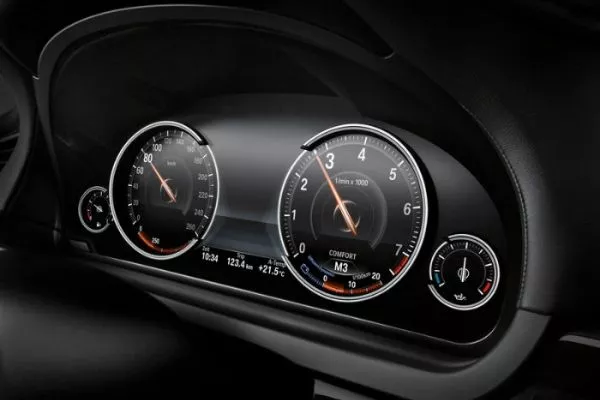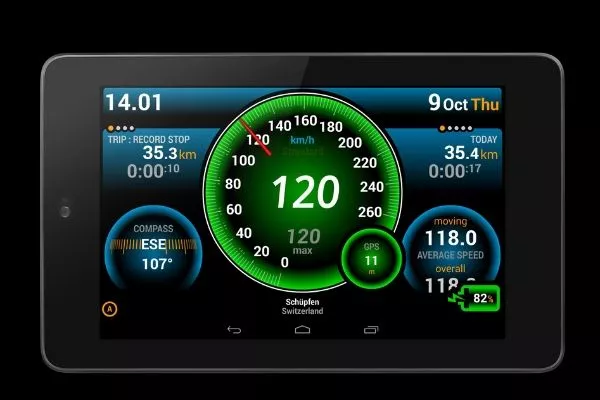Speedometers. These instruments are essential for modern cars due to many reasons. For the day-to-day driver, it’s a way to monitor speed, and of course, to avoid that pesky speeding ticket on SLEX or NLEX. For car enthusiasts, some of them get their thrills by seeing their speedometers reach 180 km/h – hopefully on a racetrack.
But have you ever wondered how accurate these things are? Are speedometers telling you the truth?

Do you trust your speedometer?
Speedometers and their accuracy
According to a report by Car and driver, almost all car manufacturers exaggerate their car’s speedometers to display a slightly faster speed. If sorted by car prices, the most blatant are luxury cars.
By category, this is more common in sports cars than city cars, sedans, pickup trucks, as well as SUVs. If we go about where the manufacturer is located, European cars are more prone to exaggerating than Japanese cars.
And lastly, if we sorted by manufacturer, cars made by GM, which of course includes Chevrolet, while the least accurate are European Sports cars. You know which those are.

This implies that BMW really knows their customers well
When it comes to how governments are addressing this, the US has the Society of Automotive Engineers J1226 which states that manufacturers are allowed a plus or minus two percent of absolute accuracy.
That’s pretty lax but American made cars as a whole are pretty accurate. For Europe, there’s the ECE-R 39 which only allows for one-tenth variance from the true speed plus four km/h. For the Philippines, we have the PNR UNECE 39 which is identical to the European standards.
Do note that during testing, a vehicle is subjected to a controlled environment. That, of course, includes tires that have normal running pressure.
In general, manufacturers are allowed a plus or minus two percent of absolute accuracy or even as much as three percent at low speeds. On top of that, speedometers today are electronic.
So in real-world driving conditions, there are numerous causes for inaccuracies like a worn alternator, a damaged battery that doesn’t hold a charge, or an under-inflated or over-inflated tire.
>>> Related: 3 things you need to know about car speed sensor
How to fight it
To get the most accurate speedometer reading possible, we highly advise keeping your tires within the manufacturer’s suggested pressure.
Also, note that upgrading to larger wheels and tires will affect the accuracy of your speedometer so it might be best to consult a mechanic who can perform speedometer calibration.
If budget is your concern, though, you can also use a smartphone speedometer app that uses GPS. This, of course, will also have variances in accuracy so we recommend the Speed Tracker for iOS and the Ulysse Speedometer for Android.

The Ulysse speedometer app looks pretty cool too
Remember also that more and more traffic enforcers especially here in Metro Manila are now using very accurate speed guns and other speed reading devices.
In connection to that, the SLEX and NLEX, as you already know, does impose a minimum speed of 60 km/h. As such, it pays to strive for accuracy even when the issue is speedos are indicating a lower speed.
For more automotive news, as well as tips and tricks, keep reading here on Philkotse.com.
Recent posts
- Which car parts do you need to check religiously? May 08, 2020
- Help...! My gauges are not working and what should I do now? Oct 20, 2021
- A summarized guide to all of your car parts & functions Aug 18, 2023
- Different types of tire pressure gauges and which is the best to choose? Jan 08, 2021
- Buyer guide: Understanding 4 common car's meters and gauges Aug 17, 2022





![[FOR FUN] Top 5 anime series that car enthusiasts will love](https://img.philkotse.com/crop/94x52/2019/11/06/xgWRvxxG/top-anime-for-car-lovers-5c8c.jpg)






